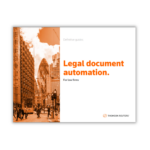
Blaming Law Students For A ‘Free Speech Crisis’ Is Dangerous
//
 Even among the annals of stupid “campus free speech crisis” stories, Judge Stuart Kyle Duncan’s misadventures at Stanford Law achieved a special level of stupid. The Trump judge’s bid for martyrdom should’ve foundered on the rocks while he sneeringly refused to answer civil questions from and then called a bunch of students appalling idiots. But Stanford’s administration opted to throw minority students under the bus and fire an associate dean anyway just to keep the judge happy.
Even among the annals of stupid “campus free speech crisis” stories, Judge Stuart Kyle Duncan’s misadventures at Stanford Law achieved a special level of stupid. The Trump judge’s bid for martyrdom should’ve foundered on the rocks while he sneeringly refused to answer civil questions from and then called a bunch of students appalling idiots. But Stanford’s administration opted to throw minority students under the bus and fire an associate dean anyway just to keep the judge happy.
But this story isn’t really about Judge Duncan, as much as it’s about the disturbing reality distortion field that’s grown up around the incident. And it doesn’t bode well for free speech.
googletag.cmd.push( function() { // Display ad. googletag.display( "div-id-for-top-300x250" ); });Judge Charles Breyer made some remarks about the Stanford story during a George Washington University Law event last April featuring Breyer and his brother the former Supreme Court justice. While the comments are almost a year old, they do speak to an ongoing problem.
 Sponsored Are Small Firms Going Big On Legal Tech? Please help us benchmark your firm against your peers through this (always) brief and anonymous survey and enter for a chance to win a $250… From Above The Law
Sponsored Are Small Firms Going Big On Legal Tech? Please help us benchmark your firm against your peers through this (always) brief and anonymous survey and enter for a chance to win a $250… From Above The Law Q: What do you recommend to students while they’re in law school and what’s your advice for them when they’re starting out in practice?
Charles R. Breyer, Senior District Judge: Sure, and unfortunately, you’ve hit a really responsive note cause I decided maybe I shouldn’t say something about the Stanford students….
Spoiler: He’s going to decide that he should say something about the Stanford students.
googletag.cmd.push( function() { // Display ad. googletag.display( "div-id-for-middle-300x250" ); }); googletag.cmd.push( function() { // Display ad. googletag.display( "div-id-for-storycontent-440x100" ); }); googletag.cmd.push( function() { // Display ad. googletag.display( "div-id-for-in-story-youtube-1x1" ); });… but if you’ve been following that…a member of the Fifth Circuit was invited to speak at Stanford and got to Stanford, it was an appellate court. A Fifth Circuit judge. He got there to speak, and was heckled by the students, with such vigor that he couldn’t get a word out of his speech.
This, mind you, is completely bullshit. The contemporary accounts described Judge Stuart Kyle Duncan “looking more like a YouTuber storming the Capitol.” Video of the incident graced right-wing cable news, but less aggressively edited clips revealed the judge being offered all kinds of time to speak… and using that time refusing to answer civil questions posed by the audience.
Sponsored Sponsored Early Adopters Of Legal AI Gaining Competitive Edge In Marketplace How to best leverage generative AI as an early adopter with ethical use. From LexisNexis
Sponsored Early Adopters Of Legal AI Gaining Competitive Edge In Marketplace How to best leverage generative AI as an early adopter with ethical use. From LexisNexis  Sponsored Are Small Firms Going Big On Legal Tech? Please help us benchmark your firm against your peers through this (always) brief and anonymous survey and enter for a chance to win a $250… From Above The Law
Sponsored Are Small Firms Going Big On Legal Tech? Please help us benchmark your firm against your peers through this (always) brief and anonymous survey and enter for a chance to win a $250… From Above The Law  Sponsored CloudLex - Purposefully Built To Help Plaintiff Personal Injury Firms Build, Manage, And Grow Their Business From CloudLex
Sponsored CloudLex - Purposefully Built To Help Plaintiff Personal Injury Firms Build, Manage, And Grow Their Business From CloudLex  Sponsored Document Automation For Law Firms: The Definitive Guide
Sponsored Document Automation For Law Firms: The Definitive Guide Look, if you think Kyle Duncan is the "adult" in this exchange with a Stanford Law student, let alone a guy sincerely trying to have a civil dialogue with people with whom he disagrees, and definitely not trying to just get blurbed on Fox News primteime,🤷♂️ pic.twitter.com/ti5mMjMnYc
— Jay Willis (@jaywillis) March 12, 2023
Things appear to have degenerated after Judge Duncan’s sneering contempt for such genuine engagement riled up the crowd — almost as though he showed up with the express purpose of making himself a martyr to boost his profile.
Breyer, who clearly never saw these clips, continued:
googletag.cmd.push( function() { // Display ad. googletag.display( "div-id-for-bottom-300x250" ); });And one would think **one would think** that law students, above all, should understand the value of a process where people express contrary and sometimes odious views that they have to be addressed in a civilized way. And so I would just say to law students, look, two things. Number one, realize that there is a process out there for expressing your views. And the smart thing, if you have very strong views about things, is learn how to challenge that. Learn how to present them.
One would think that because it seems as though that was the initial game plan for the Stanford students.
Sponsored Sponsored Document Automation For Law Firms: The Definitive Guide
Sponsored Document Automation For Law Firms: The Definitive Guide  Sponsored The Secrets Of Small Firm Success
Sponsored The Secrets Of Small Firm Success Where’s he getting this nonsense?
And subsequently the dean wrote a really wonderful letter, 10 pages in length, praised by both the Washington Post and the Wall Street Journal opinion pages as being probably a really terrific exposition of the First Amendment.
As the tipster who flagged this interview noted, how is a federal judge in the 21st century reading the Wall Street Journal editorial page as though it’s tethered to any sort of reality? Remember after Dobbs when they smeared a 10-year-old rape victim who had to travel to Indiana by claiming she didn’t exist? The opinion page is such brazen propaganda that the newsroom side of WSJ has publicly feuded with the opinion editors over their screw-ups.
The problem isn’t so much that Breyer never saw the longer, contextual clips of the Stanford dispute, it’s that he apparently never bothered to seek them out. Yet, he felt comfortable publicly assigning blame to the students without ascertaining what happened. He felt comfortable describing the events in the clip above as the judge “couldn’t get a word out” as he rambles on dismissively after being asked a fair question. And he felt comfortable scolding students for not understanding civilized behavior while a Fifth Circuit judge is calling a student “an appalling idiot.”
It’s the one-sidedness of it all. Even if you want to cast blame upon the students for taking the bait — a fair criticism — that’s not what’s happening in Breyer’s remarks. He’s placing full responsibility upon the students and absolving the comparatively more powerful ostensible adult in the room. Maybe he doesn’t want to critique the behavior of a fellow federal judge? Fine, then don’t say anything at all.
Unfortunately, he’s not been alone in heaping blame first and foremost upon students, and this impulse reflects a deeper threat to open discourse. There’s a concerted effort to recast the whole notion of free speech as a top-down right designed to protect the speaker on stage from criticism. Not just time, place, and manner restrictions on organized protests, but punishment and re-education classes for students acting within the rules but asking questions that the speaker doesn’t like.
Regurgitating the “students are the problem” narrative isn’t helping.
As Breyer put it, “Number one, realize that there is a process out there for expressing your views,” and yet the Stanford example he chooses to drag involves students engaged in what “one would think” is exactly the process he’s talking about and getting shut down. What happens then? That’s the actually interesting free speech dilemma.
Maybe he should’ve stuck with his initial decision and not have said anything.
 Joe Patrice is a senior editor at Above the Law and co-host of Thinking Like A Lawyer. Feel free to email any tips, questions, or comments. Follow him on Twitter if you’re interested in law, politics, and a healthy dose of college sports news. Joe also serves as a Managing Director at RPN Executive Search.
Joe Patrice is a senior editor at Above the Law and co-host of Thinking Like A Lawyer. Feel free to email any tips, questions, or comments. Follow him on Twitter if you’re interested in law, politics, and a healthy dose of college sports news. Joe also serves as a Managing Director at RPN Executive Search.
Charles Breyer, Free Speech, Law Schools, Stuart Kyle Duncan
Introducing Jobbguru: Your Gateway to Career Success
The ultimate job platform is designed to connect job seekers with their dream career opportunities. Whether you're a recent graduate, a seasoned professional, or someone seeking a career change, Jobbguru provides you with the tools and resources to navigate the job market with ease.
Take the next step in your career with Jobbguru:
Don't let the perfect job opportunity pass you by. Join Jobbguru today and unlock a world of career possibilities. Start your journey towards professional success and discover your dream job with Jobbguru.
Originally posted on: https://abovethelaw.com/2024/03/blaming-law-students-for-a-free-speech-crisis-is-dangerous/